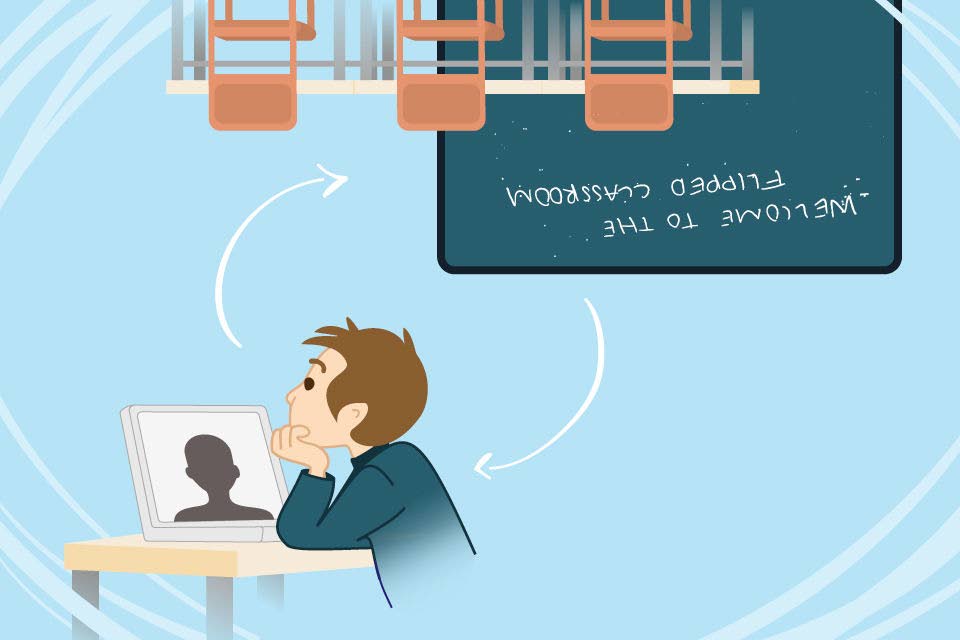Covid19, education, technology – the way forward

SHEREYL DALEY
The covid19 pandemic has forced our educational institutions to change from face-to-face classes to online instruction (The Gleaner, 2020; UNESCO, 2020). This is accompanied by wider use of WhatsApp, e-mails and other digital applications to provide course materials and information to learners. These strategies will most likely continue in varying degrees, when the crisis ends.
Effective technology use in education is beyond computers and interactive whiteboards, and more about its meaningful use in making education more relevant to life and making learning more dynamic (Pear Tree Education, Inc, 2013). The benefits and best practices for integrating technology in education include facilitating student-centred learning environments and building 21st century skills (Nilson, 2016; Bates, 2015).
The flipped classroom
The flipped classroom is a prominent, blended teaching method that is functional with large classes, across varying disciplines of study. Higher education students’ evaluations reflect a preference for these type of classes (Glazer, 2011). The flipped classroom is notable for technology use and building critical thinking and higher order skills like evaluation, analysis, synthesising and creating (Nilson, 2016; Davis and Arend, 2013; Bates, 2015; Hénard and Roseveare, 2012). It enables teachers to creatively use face-to-face class time as active and engaging sessions, providing opportunities for discussions, questions, small group activities, speeches, simulations, debates, peer teaching, role plays, problem solving, concept mapping, and designing. Teachers use technology for imparting new knowledge by creating video lectures and/or use of open education material, placing them online for students’ homework (Nilson, 2016; Danker, 2015). During class time the lecturers work through the homework, allowing for insight into where students have problems, and students are able to help each other, thus promoting collaborative learning.
Strengths – The recorded content allows students the convenience to view them at any time, and numerous times. Student motivation and feedback is bolstered, as the classroom activities develop and increase their engagement at a deeper level, and in higher-order critical thinking skills (Danker, 2015).
Challenges – Danker (2015) and Nilson (2016) cite the teacher’s learning curve, reliance on technology and student non-compliance as three challenges. For example, it may require additional time, work, and acquisition of new skills for teachers to record and edit lectures. Students may have internet access difficulties to review the lectures, outside of class time. This can be solved by converting lecture videos to thumb-drives, for use in electronic devices; and enabling access through school library and computer labs. Students may not watch the material prior to class (doing their homework), thereby not being fully equipped to participate in class activities. For greater compliance, lecturers can adjust class activities by ensuring that unprepared students watch the video, review the material at the start of the class, whilst the rest of students engage in student-centred activities to strengthen their learning; then having the delinquent students join those activities.
Flipping a classroom is revolutionary for educating the 21st century learner and adapting to the new norms of the covid19 pandemic. Lecturing, which is presenting new information, is not the best use of class time. Technology is best used for that.
Shereyl Daley, FCCA, FCA, Dip Ed (Hons) is a chartered accountant with over 20 years’ experience in leadership and management. She is an educator, the student advocate for ACCA Caribbean Jamaica Chapter, currently pursuing the EdD in higher educational leadership at UWI Open Campus, and the executive director for the Caribbean Microfinance Alliance.
(Content courtesy ACCA)

Comments
"Covid19, education, technology – the way forward"